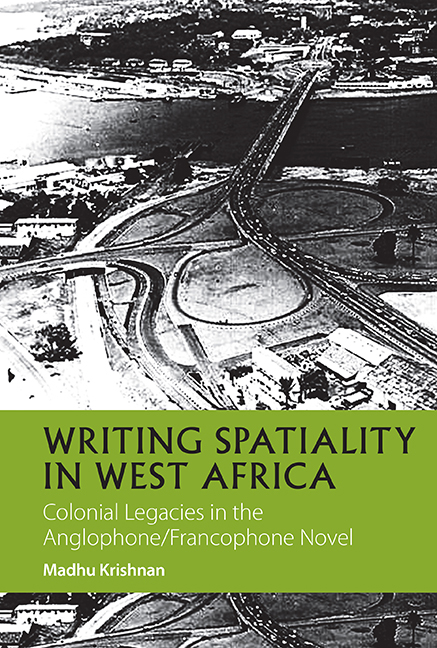Book contents
- Frontmatter
- Contents
- Acknowledgements
- Abbreviations
- Introduction
- 1 Spatiality from Empire to Independence
- 2 Post-independence Disillusionment and Spatial Closures
- 3 Social Space Beyond the Public Sphere: Women's Writing and Contested Hegemonies
- 4 Cosmopolitanism, Migration and Neoliberalism in the Wake of Structural Adjustment
- Conclusion
- Bibliography
- Index
- Frontmatter
- Contents
- Acknowledgements
- Abbreviations
- Introduction
- 1 Spatiality from Empire to Independence
- 2 Post-independence Disillusionment and Spatial Closures
- 3 Social Space Beyond the Public Sphere: Women's Writing and Contested Hegemonies
- 4 Cosmopolitanism, Migration and Neoliberalism in the Wake of Structural Adjustment
- Conclusion
- Bibliography
- Index
Summary
In recent years a new movement has sprung up in humanities scholarship. Drawing from Bruno LaTour's Actor-Network Theory (a theory, not insignificantly for the purposes of this book, which has influenced certain branches of contemporary spatial studies), this movement, dubbed the ‘postcritical’ turn by its practitioners, argues that literary study has been beset by a ‘tsunami of context-based criticism’. Under this view, the text has become little more than the instantiation of a set of historical knowns, while criticism ‘struggles between dichotomies of text versus context, word versus world, internalist versus externalist explanations of works of art’. Citing the alleged tendency of critical approaches to instrumentalise literature, fossilising it inside the ‘box of history’ of a certain time and place and deadening its more acutely felt effects across its longue durée, this is a line of argumentation that calls for, by contrast, a brand of reading less mired in what are supposed as detached and monolithic critical toolkits for interpretation and rather ‘more interested in testing out alternate ways of reading and thinking’ by exploring the ability of works of art ‘to recontextualize what we know and to reorient and refresh perspectives’. Citing the affective force of the literary text, that ineffable quality that renders some works great and others forgettable, leveraging a version of what Derek Attridge once termed the ‘singularity of literature’, proponents of the postcritical turn argue that we, as literary scholars, have somehow lost sight of the essence of literature and its true nature. Yet, where for Attridge this ungraspable sense of what the literary truly is and what it truly does to its readers gives rise to a series of ethical questions and position-takings around the text, the reader and the world, for adherents of postcriticism what appears to emerge is a resurgent focus on literary value and durability (forms of value and durability that an uncharitable reader might note seem to mimic the contours of the so-called global canon of English literature) and the notion of the subjective intimacy of reading that guides the text's ability to ‘act’ on its reader, to resonate.
- Type
- Chapter
- Information
- Writing Spatiality in West AfricaColonial Legacies in the Anglophone/Francophone Novel, pp. 175 - 194Publisher: Boydell & BrewerPrint publication year: 2018

